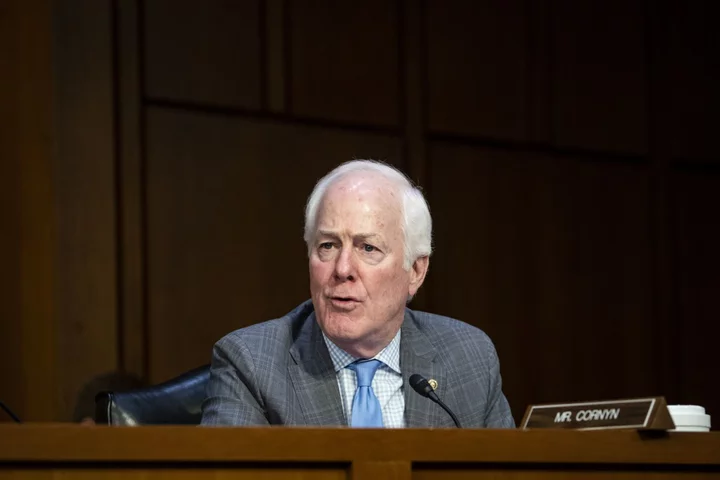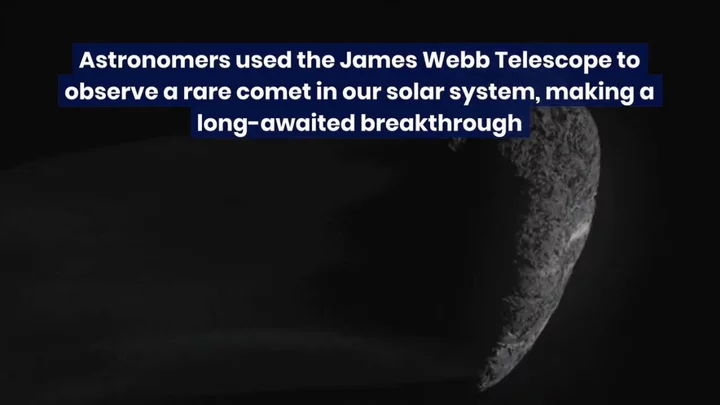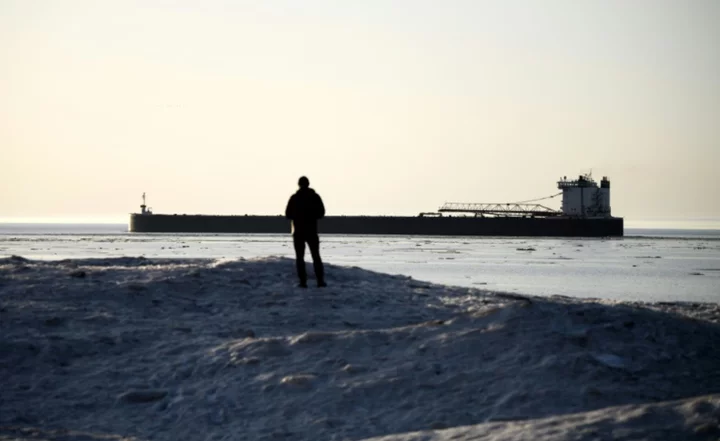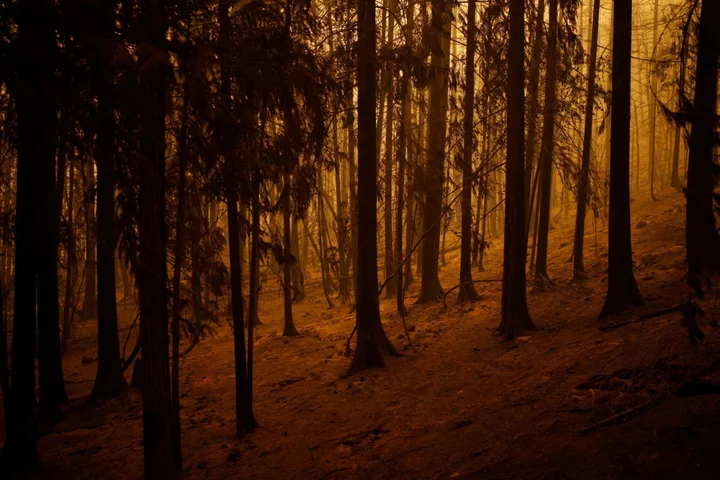Record-setting wildfires and deadly heat waves across the globe are providing the most tangible evidence of climate change yet. In fact, 2023 is likely to be the globe’s hottest year ever, according to the non-profit research group Berkeley Earth.
But that’s not motivating Republicans in Congress to want to do much about it.
“Do I have a comment about hot weather in the summer?” Senator John Cornyn of Texas, who serves as an advisor to Senate Minority Leader Mitch McConnell, said when asked about its link to climate change. “I was always taught that climate isn’t the same thing as the weather.”
Scientists say this summer’s extreme weather — including hot-tub-like temperatures off the Florida coast and wildfire smoke that blanketed US cities — was far more likely due to worsening climate change. July’s extreme heat would be “virtually impossible” without climate change driving it, a scientific analysis published this week found.
Read More: July’s Heat Waves ‘Virtually Impossible’ Without Climate Change
Cornyn said drawing a correlation from recent heat waves and wildfires to climate change was “hubris.”
Some of Capitol Hill’s top Republicans said they are unmoved by recent weather to take a more aggressive stance on global warming, which is caused primarily by humans burning fossil fuels.
“I hope we would not be swayed by news of the moment,” Representative John Curtis, a Utah Republican who chairs the Conservative Climate Caucus, said. “I think we sometimes have to be careful when we look at anomalies in weather as to whether or not they are a piece of a larger pattern or news of the moment. Because I’m not a scientist, I don’t spend a lot of time worrying about that.”
Not just heat and fires, but other weather events this summer such as horrific flooding in the Northeast are being exacerbated by climate change, said Andrew Dessler, a professor of atmospheric sciences at Texas A&M University.
“There will come a time when people look out the window and say, ‘Holy crap, we need to do something about it,’” Dessler said. “If this summer doesn’t do it, what’s it going to take?”
Democratic responses to this summer’s weather anomalies — including calls for climate and smoke emergencies and federal heat protection rules for workers — have drawn little Republican interest so far on Capitol Hill.
In recent years, Republicans have largely shifted from denying or expressing doubt about climate change to acknowledging the scientific consensus that human activity is causing Earth to warm up. They have tried to craft a policy response that doesn’t alienate supporters in the fossil fuel industry or contradict their long-standing emphasis on increasing energy production. But their previous attempts have met with a backlash from conservative groups such as the American Energy Alliance and the Club for Growth.
No Republicans voted for Democrats’ landmark climate law, which provided a historic $370 billion in subsidies for clean energy, and the GOP is now pursuing policies that would repeal large chunks of it. Republicans also want to block the Environmental Protection Agency from regulating pollution from power plants and vehicles.
The party’s current proposals to combat climate change include boosting energy efficiency, hydropower, nuclear energy and carbon capture as well as domestic production of oil and natural gas, on the argument that fossil fuels are produced more cleanly and efficiently in the US than abroad.
What they don’t include is limits on planet-warming greenhouse gas emissions or the use of fossil fuels. The United Nations’ Intergovernmental Panel on Climate Change and the International Energy Agency say that’s vital to staving off the severest impacts of climate change.
Read More: GOP Plans to Offer Oil, Gas and Trees As Climate Fixes
“Their proposed solutions are wholly inadequate,” said Gene Karpinski, president of the environmental group League of Conservation Voters. “Some actually increase carbon pollution, others barely make a difference.”
Representative Bruce Westerman of Arkansas, the chair of the House Natural Resources Committee, said the Republicans’ proposed policies “actually work and can reduce emissions, sequester carbon and not draw energy costs through the roof.” Westerman is pushing legislation to plant 1 trillion trees that would help absorb carbon.
Senator Lisa Murkowski, an Alaska Republican who in the past signaled that she was open to a carbon tax, said the party has made progress. Incremental gains in awareness could eventually lead to significant legislation being passed, she said.
“You don’t have anyone in the Republican conference denying we are seeing a warming climate,” Murkowski said. “I think you have some dispute about the causes, but it’s a very, very different discussion about climate then where we were even just a few years ago. It’s never fast enough for anybody. But are we making progress? Absolutely so.”
Inaction could present political peril for Republicans as floods, wildfires and heat waves affect more Americans. A survey conducted by the Democratic polling firm Global Strategy Group in April, even before this summer’s extremes, found that 74% of registered voters believe climate change is a major problem, up five points from two years ago.
“It is a really politically paralyzing position for them,” Andrew Baumann, a partner with Global Strategy Group, said. “The idea of inaction and continuing to say it’s not a problem is just not tenable anymore.”
Among those pressuring the Republican party to act is former California Governor Arnold Schwarzenegger. Schwarzenegger joined more than a dozen Republican members in House Speaker Kevin McCarthy’s office earlier this month to tell them they needed to do a better job on messaging on the issue. Part of his advice: Refer to the issue as “fighting pollution,” according to Curtis, the Utah Republican, who attended the meeting.
Read More: Schwarzenegger Pushes McCarthy, GOP on Climate Change
And Republicans including Senators Bill Cassidy of Louisiana, Kevin Cramer of North Dakota, and Lindsey Graham of South Carolina are crafting legislation that would slap border tariffs on carbon-intensive imports like cement, steel and aluminum. Such a move would provide the GOP with a way to ding China while blocking it from undercutting US manufacturers with cheaper yet dirtier goods.
But don’t expect anything major soon, said Senator Mitt Romney, a Utah Republican who has called for putting a price on carbon.
“I don’t think there is much action at all of a bipartisan nature on climate, other than small-bore virtue-signaling steps,” Romney said. “It takes the public at large to say ‘Hey, this is an important political issue.’ And as more young people fill out the voter rolls, you’re going to see this as a bigger political imperative.”
(Correction in the eighth paragraph to the name of the caucus that Curtis chairs: the Conservative Climate Caucus, not the Conservative Climate Solutions Caucus as the original July 27 story stated.)









